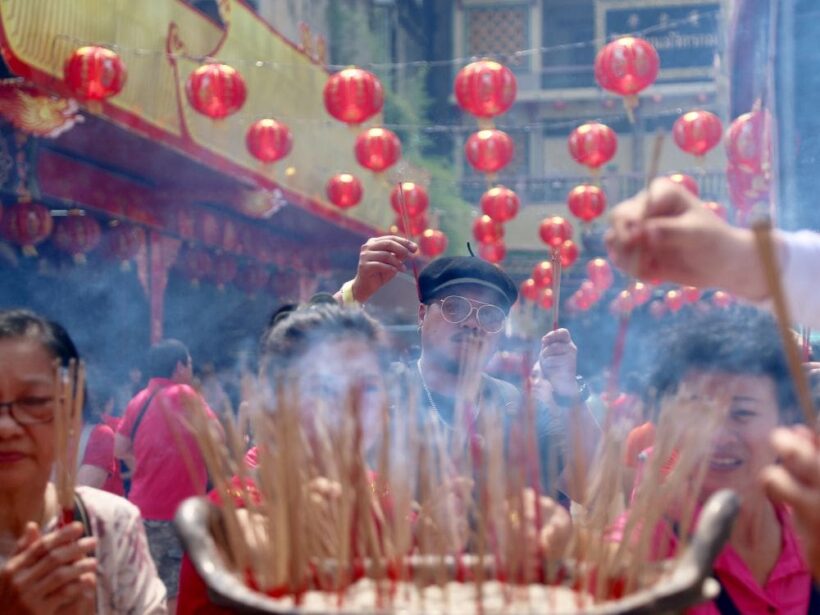Selling Or Distributing Incense Sticks In Singapore
The deadly poison of joss sticks–or joss sticks as it is commonly called in the West–is a mystery to me. I’d heard about this dangerous ritual done for years
from friends in Thailand, but only recently have I been able to learn about it. Worship is traditionally not a life-threatening endeavor 马来西亚蜡烛批发商. But devotees around
Asia can be taking their own life into their own hands each time they visit a temple to worship, as a new study by a leading Thai physician has discovered.
The burning joss sticks as an offering at temples and shrines fills the air with cancer Caused toxins that are just as deadly as cigarette smoke and traffic
fumes.

Selling Or Distributing Incense Sticks In Singapore
The deadly poison of joss sticks–or joss sticks as it is commonly called in the West–is a mystery to me. I’d heard about this dangerous ritual done for years
from friends in Thailand, but only recently have I been able to learn about it https://jinpaper.com/collect. Worship is traditionally not a life-threatening endeavor. But devotees around
Asia can be taking their own life into their own hands each time they visit a temple to worship, as a new study by a leading Thai physician has discovered.
The burning joss sticks as an offering at temples and shrines fills the air with cancer Caused toxins that are just as deadly as cigarette smoke and traffic
fumes.
Dr. Mahathathip Ray from the Department of Forensic Science, Mahathip Hospital Bangkok, reported in a paper published online in the British Medical
Journal (BMJ) in May that he found high concentrations of a toxin called tryptophan in the temple workers’ joss sticks. This tryptophan causes an elevated
heart rate and blood pressure, which is what causes cardiac arrest in most people with coronary artery disease. The high concentration of tryptophan found
in joss sticks was surprising to the authors of the study, who were mainly interested in the effects of this popular sachet on temple workers. They had no
idea that it could kill. They concluded that the high levels of tryptophan found in joss sticks were the cause of the fatal heart attacks and other problems that
lead researchers to believe joss sticks are a type of incense. Because tryptophan is made from amino acids, it is a cheap and available ingredient.
The study found that the average cost stick contained almost two percent tryptophan, but that the highest concentration was in sticks that had been
regularly burned for at least six months. People who regularly burn joss sticks regularly have very low levels of tryptophan, and they do not suffer from any
serious side effects. It is believed that the incense that is burned is releasing toxins into the air. Tryptophan has become associated with the toxins released
from tobacco smoke, and researchers are trying to find ways to release toxins from burning wood or incense sticks. Some manufacturers are releasing
natural ingredients such as lavender oil or neem oil into their joss sticks, so that they are less toxic. But experts are not entirely sure whether these natural
additives will help reduce the effects of toxins.
Since joss sticks are now being sold in traditional markets, buyers can expect to be exposed to tryptophan. Although the manufacturers of joss sticks claim
that they do not add tryptophan to the joss sticks, buyers should be aware of the possibility. Incense sticks are traditionally burned in a very specific way in
order to release the fragrance, and in a religious context, the stick is treated with respect and honor. In the United States, however, joss sticks are a popular
alternative to traditional religious images such as the cross, and some people choose to burn them even when they do not attend church on a regular basis.
A joss stick maker in Singapore makes around fifty thousand sticks each month, and revenue seems to be growing every month. Many residents of
Singapore are also starting their own businesses based around tay or around incense sticks, and they make a tidy living. It is possible to visit a mall in
Singapore that sells tay products, and while it may be illegal to buy from the mall itself, the practice may still be widely accepted within the community. So it
seems that the incense sticks that are most popular with shoppers in Singapore may also be the most popular with the local population, and it seems that
they could remain a mainstream product for a long time to come.

If you want to make money selling your joss sticks in Singapore, you will need to find a distributor or an importer. In fact, many distributors and importers in
Singapore import joss stick from China, as well as other Asian countries such as Korea and Taiwan. When you are choosing a distributor in Singapore, you
will also need to be sure that you contact a good company that can get the job done properly. The last thing you want is to have your products damaged in
transit and end up having to export them to another country, or having the quality issue that you were worried about, go unnoticed in Singapore.